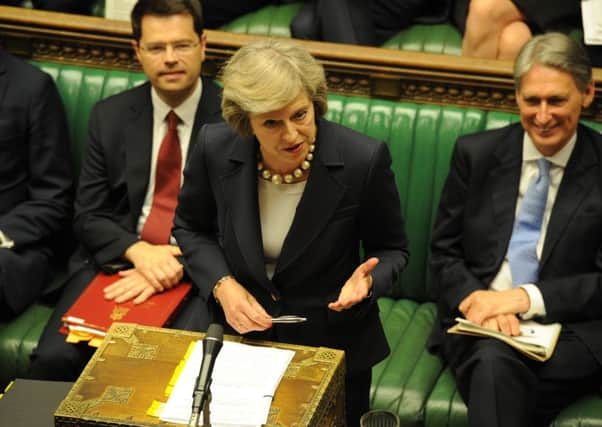Leaders: Like it or loathe it, Brexit is fact and we must face it


Ever since we awoke to the startling news that Britain had voted to break off its relationship with the European Union, there have been suggestions that this momentous split will never actually happen. There is more than enough time to find reverse gear, we were told. There will be a legal challenge to prevent it happening, they said. Parliament will block it, we heard.
The odds on Article 50 ever being triggered started to get longer. The “smart money” started to back the theory that too many people had realised that Brexit was a mistake, for it ever to be executed. The prospect of a second referendum was then introduced to the debate. A new government under Theresa May would need a second vote to legitimise the referendum vote, was one argument that gained popularity. A general election would be required to give her government a mandate before it could attempt such a fundamental change to the constitution, was another theory that caught on.
Advertisement
Hide AdAdvertisement
Hide AdBut at last, we have confirmation from Mrs May that there will be no second referendum, or early general election to seek approval for whatever new relationship is negotiated. Parliament will be given a “say” but not a vote. And this is exactly how the Prime Minister should proceed.
The referendum process was quite clear, the question straightforward, the consequences well aired prior to the vote on 23 June. A referendum is arguably the most democratic device available to us when seeking public opinion, and there comes a time when it is necessary to say that the question has been asked, the people have spoken, and the decision is final. To reject a referendum result is to oppose the will of the people, and that is a dangerous route for any government.
A spokesman for No10 also gave a timely reminder yesterday that the referendum bill was backed by a majority of six to one in the Commons. This was no ambush.
Instead of wasting time challenging or defending the referendum outcome, it would make more sense to concentrate on securing the best exit deal possible, to minimise the turbulence that is expected to hit the economy when the Brexit process is put into action.
The government could start by triggering Article 50 at the earliest opportunity, to ensure that negotiations take place with the UK at the table, rather than find that relationships have been changed before talks have even begun. We have been given warning already that events could develop without UK input or control, with Home Secretary Amber Rudd having to move fast this week over concerns that France could axe British border controls in Calais and send the refugee camp to Dover. It is easy to see why the French could push forward with such a move. Why sit and wait for the British to get their house in order?
Even if we do not like Brexit, we must live with it, and to make the most of what that future could hold, we must engage positively and fully with the process of negotiation. There is too much to lose on all fronts if we waste time and energy on futile attempts to thwart the democratic process.
Tattered legacy further tarnished
David Cameron used to be driven by the thought of the legacy he would leave behind. He wanted to be the prime minister and leader of the Tory party that healed the deep divisions in his party and that resolved the issues of Scottish independence and the UK’s place in Europe. That hubris led him to embark on high-risk referenda when there was absolutely no need to do so, and wise political counsel would have been to undertake no such action.
He narrowly missed out on being the man on whose watch the Union was broken up, but instead became the prime minister who presided over a vote to leave the European Union against his wishes. He was forced to resign. His legacy was that of the most inept and incompetent prime minister the country has seen. But now it seems he wants to further besmirch the tatters of his reputation.
Advertisement
Hide AdAdvertisement
Hide AdIt was a disgrace that he used his position to dole out national honours to a select few of his close advisers. That discredited the entire honours system. But now it has been revealed he has compounded this by also giving the advisers massive pay rises at the taxpayers’ expense. This of course also means that any pay off calculated on their salaries would be increased hugely. That is an insult to all the other public servants in the country.
These pay rises are shameless self-indulgent hypocrisy. Mr Cameron is a rich and privileged man – if he genuinely believes that there needs to be additional financial recognition for the help he received from his special advisers then he is quite able to afford to give them something himself.
This abuse of position amounts quite simply to sticking two fingers up at the nation he purported to serve.